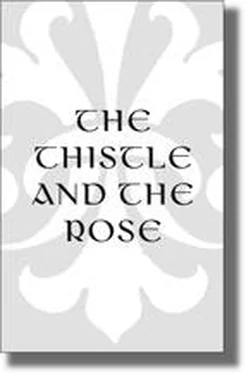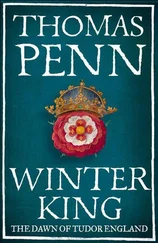Jean Plaidy - To Hold the Crown - The Story of King Henry VII and Elizabeth of York
Здесь есть возможность читать онлайн «Jean Plaidy - To Hold the Crown - The Story of King Henry VII and Elizabeth of York» весь текст электронной книги совершенно бесплатно (целиком полную версию без сокращений). В некоторых случаях можно слушать аудио, скачать через торрент в формате fb2 и присутствует краткое содержание. Жанр: Старинная литература, на русском языке. Описание произведения, (предисловие) а так же отзывы посетителей доступны на портале библиотеки ЛибКат.
- Название:To Hold the Crown: The Story of King Henry VII and Elizabeth of York
- Автор:
- Жанр:
- Год:неизвестен
- ISBN:нет данных
- Рейтинг книги:5 / 5. Голосов: 1
-
Избранное:Добавить в избранное
- Отзывы:
-
Ваша оценка:
- 100
- 1
- 2
- 3
- 4
- 5
To Hold the Crown: The Story of King Henry VII and Elizabeth of York: краткое содержание, описание и аннотация
Предлагаем к чтению аннотацию, описание, краткое содержание или предисловие (зависит от того, что написал сам автор книги «To Hold the Crown: The Story of King Henry VII and Elizabeth of York»). Если вы не нашли необходимую информацию о книге — напишите в комментариях, мы постараемся отыскать её.
To Hold the Crown: The Story of King Henry VII and Elizabeth of York — читать онлайн бесплатно полную книгу (весь текст) целиком
Ниже представлен текст книги, разбитый по страницам. Система сохранения места последней прочитанной страницы, позволяет с удобством читать онлайн бесплатно книгу «To Hold the Crown: The Story of King Henry VII and Elizabeth of York», без необходимости каждый раз заново искать на чём Вы остановились. Поставьте закладку, и сможете в любой момент перейти на страницу, на которой закончили чтение.
Интервал:
Закладка:
Yes, the King would have liked to make a change in those surrounding his son; but he had other matters on his mind now and he had at least sent Skelton away.
Perhaps he was too sensitive about his son’s ambitions. After all the boy had to be brought up to kingship. There was some small comfort in the fact that he knew he would inherit the throne. That was so much more to be desired than coming to it suddenly. No, young Henry was preparing himself for the role and the King should be pleased that he took to it with such alacrity.
Pray God he himself could live for a few more years until Henry was of a sober age. The King had no doubt that with maturity would come some suppression of that egoism, which was so much a part of his son’s nature. All young men could be unwise. He will settle to it, thought the King. He just needs a firm hand now.
The sound of voices below broke into his reverie and going to the window he saw a group of young people at play. He was alert immediately because he caught sight of young Henry among them. His son was on horseback for the game—as most games played by the boys—was a military as well as an equestrian exercise. Henry stood out among them—although he was younger than most. The King could not repress his parental pride. He will soon be taller than I am, he thought, half resentfully, half fondly. And the boy glowed with health as his father had never done.
He would look the part, and he would play it to the full, but would he have the stability, the cunning . . . the King reproached himself. Young Henry was but a boy yet. The correct training, the molding, the watchfulness would shape him into the sort of king his father wanted him to be and whom the country needed.
The game was that which was a favorite of the young: quintain. On a pivot stood a figure in the form of a knight in armor. It was life-sized and fixed to one hand was a sandbag. The player must ride at full gallop to the figure, attack it and retreat before the arm shot up when the sandbag could hit the rider. Like all such games there was a strong element of danger in it, for the rider who was not quick enough in getting away could receive such a blow from the sandbag as would unseat him, and there had been accidents—one or two fatal.
Although the King was nervous about his son’s taking part in dangerous games he knew that he must do so; and this favorite one of quintain would not have interested the boys at all but for the danger they had to avoid.
He watched them for a while. He noted that young Henry had more turns than the others, that the applause which greeted his successes was more vociferous than that awarded to the others.
Inevitable, thought the King. But I must be watchful of him. If I had another son . . .
His expression lightened. Katharine was here . . . on the spot, and if there were objections he would impress on his ministers the need for another male heir. It is never wise to have but one. Henry seemed healthy but let them remember the Black Prince and the disaster his death had brought with the accession of the boy Richard.
Katharine had not been tested for fertility yet, and he had to be thankful that she had not, for if the union with Arthur had been consummated that might have made marriage with him too distasteful to be accepted. But as it was he saw no reason why she should not be his wife. She had married his son it was true, but it had been no physical marriage.
He had hopes of Ferdinand. Of Isabella he was not so sure.
Even as he watched his son at play he heard the sounds of approaching hoofbeats and glancing away from the game in the opposite direction he saw that the visitor was de Puebla and he guessed that the Spaniard brought news from his Sovereigns.
A faint pulse beat in his temple. He found that he was quite excited. There should be as little delay as possible. There would be a lavish wedding to satisfy the people’s love of ceremony . . . and then . . . the consummation and the results.
One of his squires was at the door to tell him that Dr. de Puebla was below and seeking an audience.
“I will see him now,” said the King.
De Puebla came in and bowed. He looked grave and knowing the man well the King’s spirits sank. There were going to be obstacles. That much was apparent.
“You have heard from the King and Queen?” asked the King.
“My lord, I have heard from Queen Isabella.”
The King was even more dismayed. It was from that quarter that he expected opposition. Ferdinand was much more likely to agree if the match was advantageous enough. Isabella was too emotional and feminine, too much the doting mother, which was strange in a woman of her ambitions and abilities. And Isabella was Castile, and Ferdinand Aragon and Castile was the more important. Ferdinand in a way owed his greatness to Isabella and loving wife and mother though she was, Isabella never forgot it.
“She refuses sanction for your marriage with the Infanta,” said de Puebla.
“Refuses? But she must see the advantages.”
“She says it is against the laws of nature. The Pope would not agree.”
“The Pope will agree if we explain to him his need to do so,” said Henry tersely.
“But Isabella will doubtless explain his need not to grant a dispensation,” said de Puebla slyly.
Henry disliked the man although it was to his advantage to cultivate him. He was a good go-between, serving Henry almost as much as the Sovereigns. It was for this reason that he had done so well in England and that his rival had been recalled.
“My lord,” went on de Puebla, “the Queen is very firm. She says no to such a marriage. She is surprised that it should be suggested.”
“And Ferdinand?”
“You know, my lord, that he could not act without Isabella.”
Henry nodded.
“Perhaps we should not give up hope. But I deplore the wasting of time.”
De Puebla smiled again with that sly look. “None could accuse you, my lord, of doing that. I must tell you truly that the tone of Queen Isabella’s letter is very strong. I know my mistress well. She is not pleased that the possibility of marriage should even have been suggested. She says that Katharine is to marry the Prince of Wales and she desires that the binding ceremony of betrothal takes place without delay. If this is not done she demands the return of the half of the dowry, which was sent on Katharine’s marriage to Prince Arthur.”
Henry was silent. He was astute enough to know that in asking for the hand of Katharine so soon after his wife’s death he had made a grave error.
De Puebla went on: “The Queen however understands your need for a wife and she would draw your attention to the recently widowed Queen of Naples.”
“The Queen of Naples?”
“Young, comely . . . and a queen,” said de Puebla.
Henry was silent and de Puebla went on: “If you should need my services, Sire, I should be happy to give them.”
“Thank you,” murmured the King. He felt old and tired. But he was not one to waste time in regrets.
Already his mind had turned from Katharine of Aragon to the Queen of Naples.

When de Puebla presented himself to Katharine a few days after his audience with the King he came to her smiling enigmatically. He felt the good news would be more appreciated if she suffered a few moments of anxiety first.
“You have news from my mother?” cried Katharine.
“My lady, I have indeed such news.”
He paused, allowing a smile to creep slowly across his face. She was waiting breathlessly and he realized he could delay no longer.
“The Queen, your noble mother, refused to allow a match between you and the King.”
Overcome by relief, Katharine covered her face with her hands. She should have known. How she thanked God for her beloved mother! While she was there, steadfast and caring, there could be little to fear.
Читать дальшеИнтервал:
Закладка:
Похожие книги на «To Hold the Crown: The Story of King Henry VII and Elizabeth of York»
Представляем Вашему вниманию похожие книги на «To Hold the Crown: The Story of King Henry VII and Elizabeth of York» списком для выбора. Мы отобрали схожую по названию и смыслу литературу в надежде предоставить читателям больше вариантов отыскать новые, интересные, ещё непрочитанные произведения.
Обсуждение, отзывы о книге «To Hold the Crown: The Story of King Henry VII and Elizabeth of York» и просто собственные мнения читателей. Оставьте ваши комментарии, напишите, что Вы думаете о произведении, его смысле или главных героях. Укажите что конкретно понравилось, а что нет, и почему Вы так считаете.












